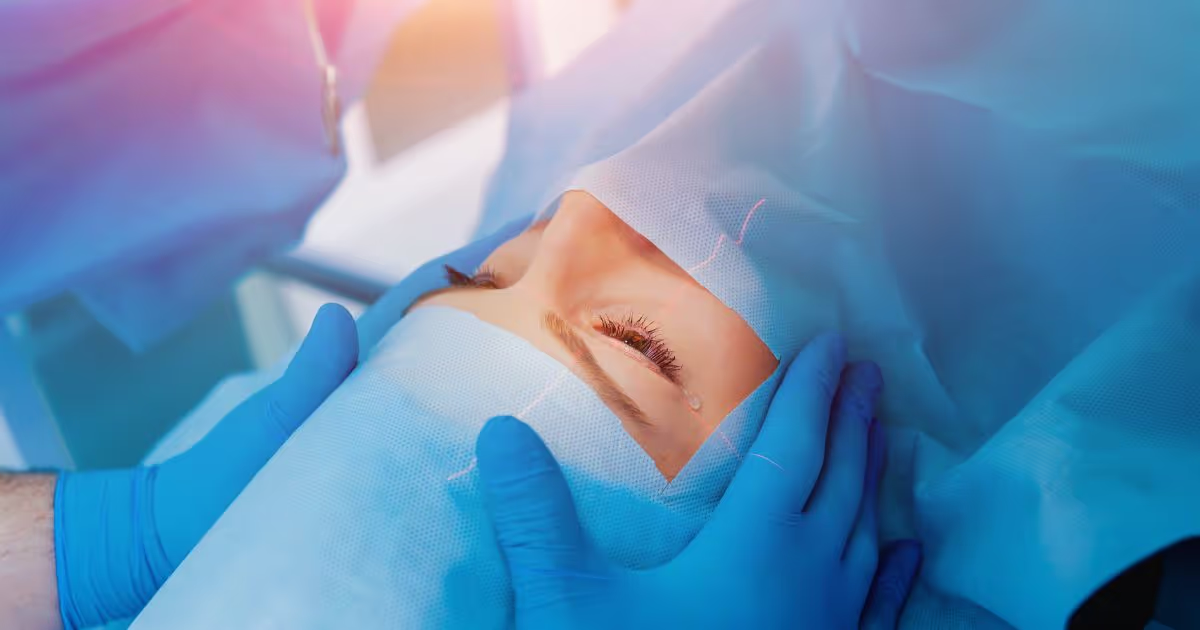Choose the content to read
- What is YAG laser capsulotomy?
- What are the symptoms of posterior capsule opacification?
- Posterior capsulotomy procedure
- What are the aftercare instructions following a YAG capsulotomy?
YAG Laser Posterior Capsulotomy
The ocular lenses sit behind the iris and pupil. They function to focus light onto the retina, creating a clear vision. In people with cataracts, the lenses become cloudy, leading to blurry vision, double vision, light sensitivity, night vision difficulties, and seeing faded colors. Cataract surgery to extract the diseased lens is the sole remedy for this condition. In the surgery, an artificial intraocular lens replaces the removed cloudy lens, held in place by the lens's natural capsule. Despite artificial lenses not progressing to cataracts, individuals undergoing this surgery may experience a recurrence of blurred vision over time -- due to posterior capsule opacification.
Enveloping a natural eye lens is a delicate membrane called the lens capsule. When an ophthalmologist replaces a cataract lens with an artificial intraocular lens, the new lens is positioned and held in place by the natural lens capsule. The lens capsule may turn cloudy, manifesting symptoms like cataracts.
What is YAG laser capsulotomy?
YAG laser capsulotomy is a treatment for posterior capsule opacification; the ophthalmologist aims the laser to create a small opening in the cloudy posterior lens capsule, allowing light to shine through and restoring vision.
Who needs a YAG laser posterior capsulotomy?
Posterior capsule opacification is a side effect of cataract surgery. Not everyone undergoing cataract surgery develops posterior capsule opacification. Between 20% to 50% of individuals may experience it within 2-5 years after cataract surgery, particularly in children.
What are the symptoms of posterior capsule opacification?
Symptoms of posterior capsule opacification are like those of cataracts. If you experience a recurrence of cataract symptoms, contact your ophthalmologist for a slit-lamp examination.
Posterior capsulotomy procedure
A YAG laser posterior capsulotomy is an outpatient procedure taking only five minutes.
Steps of the procedure:
- Installation of anesthetic eye drops to numb your eye and a second eye drops to dilate your pupil.
- The ophthalmologist will focus a YAG laser on the posterior lens capsule to make a small opening for light to shine through.
- After the procedure, when your vision becomes clear again, you can resume regular daily activities, except driving. You should bring along a friend or family member. The ophthalmologist will inform you of activities you should avoid immediately after the surgery.
- You will receive eye drop medication for use. Visual clarity should occur within 24 hours. If they aggravate, contact your ophthalmologist.
Side Effects of Posterior Capsulotomy
- Retinal detachment
Retinal detachment can cause retinal impairment and blurry vision. You may see flashes of light, increased floaters in your eyes, and a gray curtain in the field of your vision. Retinal surgery is required. - Ocular hypertension
The eyeball contains various fluids, such as vitreous and aqueous humor. In a healthy eye, these fluid pressures are stable, reflecting a balance between fluid production and drainage. If the fluids do not drain out properly, it can lead to elevated intraocular pressure and glaucoma. Ocular hypertension treatment involves instilling medicated eye drops. This timely intervention can help prevent glaucoma with optic nerve damage. - Glaucoma
Glaucoma occurs when the increased eye pressure damages the optic nerve responsible for transmitting visual information from the retina to the brain, leading to vision loss. This process is usually gradual. However, acute angle-closure glaucoma can occur attended by symptoms including severe pain in the eyes and the forehead, headache, nausea, vomiting, eye redness, blurry vision, decreased vision, or seeing rainbows or halos of light.
Other complications are swelling in the eye and postoperative dislocated intraocular lens.
What are the aftercare instructions following a YAG capsulotomy?
Your doctor will provide aftercare instructions and may prescribe antibiotics to prevent infection. While you can use your vision right after the treatment, it is advisable to have someone drive you home. Normal vision is usually restored within 24 hours, enabling you to resume your daily routine.
Where is the best place to have a YAG capsulotomy done in Thailand?
MedPark Hospital features a cadre of skilled and seasoned ophthalmologists alongside state-of-the-art diagnostic and treatment technologies, capable of managing a spectrum of eye conditions, including myopia, hyperopia, astigmatism, corneal diseases, blepharitis, styes, cataracts, retinal diseases, and glaucoma. Whether considering YAG capsulotomy or other interventions, visit the Eye Care Center at MedPark Hospital for precise diagnosis and effective treatment.











